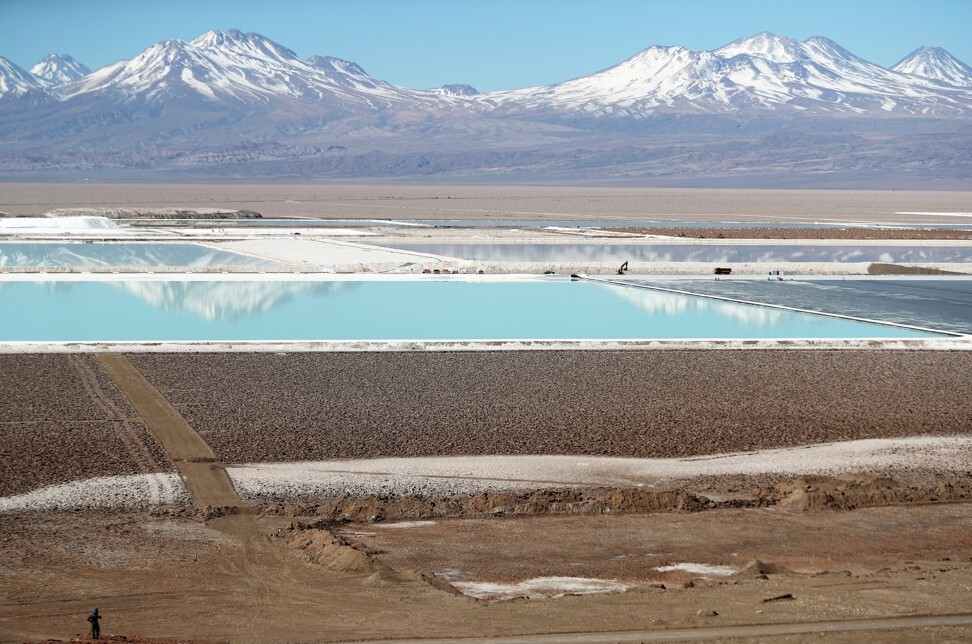
Chinese lithium producer plunges on cash crunch in reminder of missteps from debt-funded global expansion
- Tianqi Lithium, a Sichuan-based lithium producer says it may not be able to repay a US$1.88 billion loan this month
- Loan helped fund the company’s US$4.1 billion acquisition of Chilean producer SQM in May 2018, just before lithium prices crashed

Tianqi Lithium’s shares plunged in Shenzhen after the leading Chinese lithium producer warned it may not have enough cash to repay a US$1.88 billion loan this month in yet another misstep since it was downgraded to junk in June last year.
The stock fell as much as 10 per cent to 22.16 yuan on Monday, before closing 7.7 per cent lower at 22.69 yuan. It was the biggest one-day drop since an 8.2 per cent setback on July 21, bringing this year’s decline to 25 per cent. The company’s sole dollar bonds were indicated near a five-month low.
The Sichuan-based company said it may not be able to repay the loan to a consortium led by China Citic Bank. The size of the loans is equivalent to 179.4 per cent of the company’s most recent audited net assets, it said in an exchange filing on Saturday.
The company has asked lenders to adjust the term structure and its application was still being processed, it added.

The company’s troubles continue to offer a reminder to investors that Chinese companies are still paying the price from their unbridled mergers and acquisitions (M&As) over the past decade. That debt-fuelled expansion strategy has tripped up bigger names such as Anbang Insurance and the sprawling HNA Group.
Tianqi’s main indebtedness came from the loan that helped fund its US$4.1 billion acquisition of a 23.8 per cent stake in SQM, a major Chilean lithium and potassium producer in May 2018, at the height of the commodity boom. The company put up US$726 million of its own capital and borrowed US$3.5 billion to buy SQM.
Lithium prices have plunged by about 60 per cent to US$116.23 per metric tonne from a peak of US$296 in May 2018, according to Bloomberg data. Demand has suffered during the coronavirus pandemic, and the company’s revenue fell 27.4 per cent year on year to 1.88 billion yuan in the first half this year, it said.
The plunge in Tianqi stock came after Yongcheng Coal and Electricity Holding Group, a state-owned firm in central China’s Henan province, defaulted on 1.032 billion yuan of commercial paper due on November 10.
Huachen Automotive Group Holding, the state-owned parent of BMW’s main Chinese joint-venture partner, also missed a debt repayment in October, spooking the debt market as the government avoided bailing them out.
Moody’s predicted last week that onshore and offshore corporate bond defaults in China will continue to increase in the next 12 months. Moody’s had cut Tianqi’s US$300 million 2022 notes to junk Ba2 from an investment grade of Baa3, in June 2019. Four more cuts brought its rating to Caa2, a level deemed as distressed.